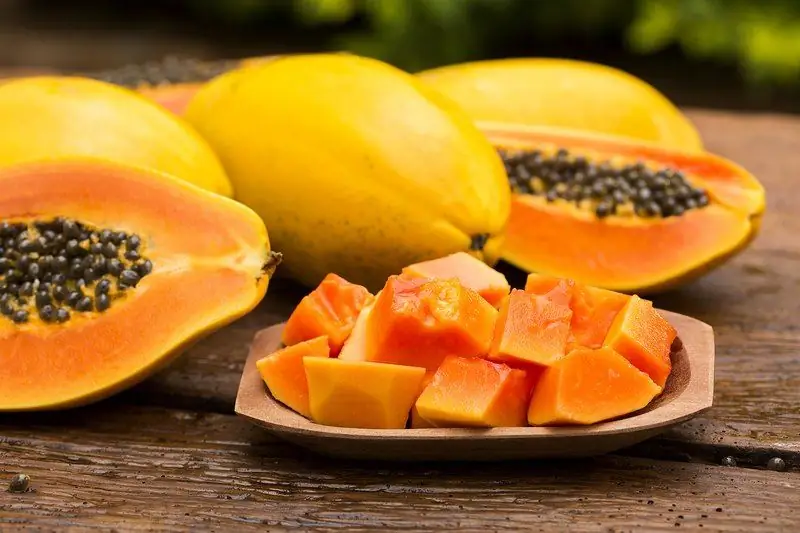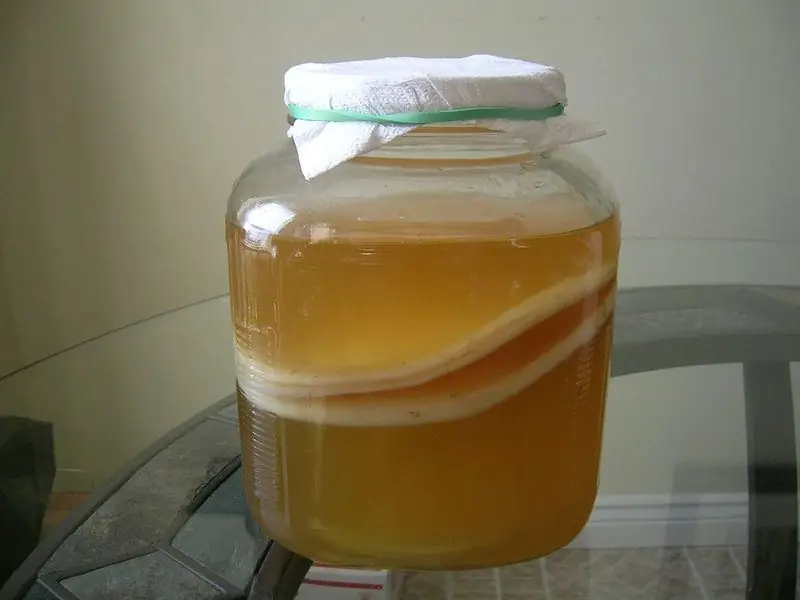
Table of contents:
- Author Bailey Albertson albertson@usefultipsdiy.com.
- Public 2023-12-17 12:53.
- Last modified 2025-01-23 12:41.
9 benefits of hydroponic growing plants

Hydroponics is a method of growing plants without soil. Organic or inorganic mixtures with a porous structure are used, which allow precise and metered delivery of water and nutrients to the plant root system. This method has several undeniable advantages.
Fast growth
When using hydroponics, the nutrition of the root system is built in the most optimal way for the plant, the content of carbon dioxide necessary for photosynthesis is achieved in the air, and the supply of liquid and minerals can be easily regulated. Due to the combination of these factors, the most convenient environment for active growth and fruiting is created.
Roots don't suffer
It is much easier to maintain the desired moisture regime in a hydroponic environment than in soil. Due to this, the root system, with proper care, does not dry out and remains protected from decay.
Aeration of the roots allows you to build a more bulky rhizome mass. This makes plants stronger and more resilient.
Watering less often
Daily watering is not required with this growing method - the hydroponic substrate dries out much more slowly than the soil. Usually, water is poured into containers at different intervals, individual for each plant. It is possible to set up automatic irrigation using a pump system.
Easier to transplant
When transplanting plants from soil, damage to the root system inevitably occurs: cleansing of the remnants of old soil, a tighter adherence of the substrate to the roots injures them.
Hydroponics allows you to replant the plant in a less traumatic way, since the roots are not in such close contact with the substrate.
Saving money
The hydroponic method can be considered quite economical, because there is no need to regularly change the substrate, as is the case when using soil, and most materials are affordable.
Any soil depletes over time and requires replacement, the basis for hydroponics is devoid of this disadvantage and can be used several times.
Easy care

This is an ideal solution for those who care about cleanliness when growing plants: there are no unpleasant odors, containers with seedlings are easy to transport, and hands always remain clean during care and transplantation.
The ability to use automated irrigation and fertilization systems will allow you to spend much less time caring for plantings.
No fertilizer problem
As with watering, overdose or lack of fertilizer can be avoided. This is achieved due to the fact that the required dosage of minerals is calculated in advance and is introduced together with water as needed. Everything happens under the strict control of the gardener.
The absence of impurities allows you to achieve the optimal ratio of trace elements necessary for the plant.
No soil pests and diseases
When planting seedlings in a soil substrate, one cannot be completely insured against the appearance of pests (such as sciarids, nematodes or bears), bacteria and fungi.
A clean hydroponic base eliminates this problem by minimizing the chance of soil parasites occurring. No chemicals are needed to kill pests.
Plants do not accumulate harmful substances
Any soil can accumulate salts of heavy metals, nitrates and other toxic components over time. Through the root system, all these substances enter the seedlings. Hydroponics avoids this, which is especially important when growing fruit and berry crops and vegetables. The crop grown in this way will contain only useful substances.
Recommended:
Celery: Health Benefits And Harms For Men, Women And Children, Recipes

Types of celery. Chemical composition of root and stalk celery. Benefits and contraindications. How to eat. Juice and salad recipes. Limitations
Grass For Cats: Types, Benefits, How To Grow It At Home, Which One Is Better To Choose, How To Wean An Animal From Eating Other Plants

Reasons a cat needs grass Plants that are dangerous and harmless to your pet. How to choose and plant cat grass. How to save flowers in the house from an animal
Jerusalem Artichoke: Benefits And Harms To The Body, Including Syrup, For Diabetes, Reviews

Useful properties of Jerusalem artichoke. What diseases it helps. What parts are used for medicinal purposes. Permissible doses of Jerusalem artichoke per day. Harm and reviews
Papaya: Benefits And Harms For The Body Of Women And Men, Fresh Fruits And Dried Candied Fruits, Reviews

Should you include papaya in your diet and why? Does papaya help you lose weight? To whom this fruit is contraindicated. Customer reviews about eating papaya
Kombucha: Benefits And Harms To The Body, Reviews Of Doctors

The benefits and harms of kombucha. Reviews of doctors and consumers. What does Kombucha cure? Research scientists
